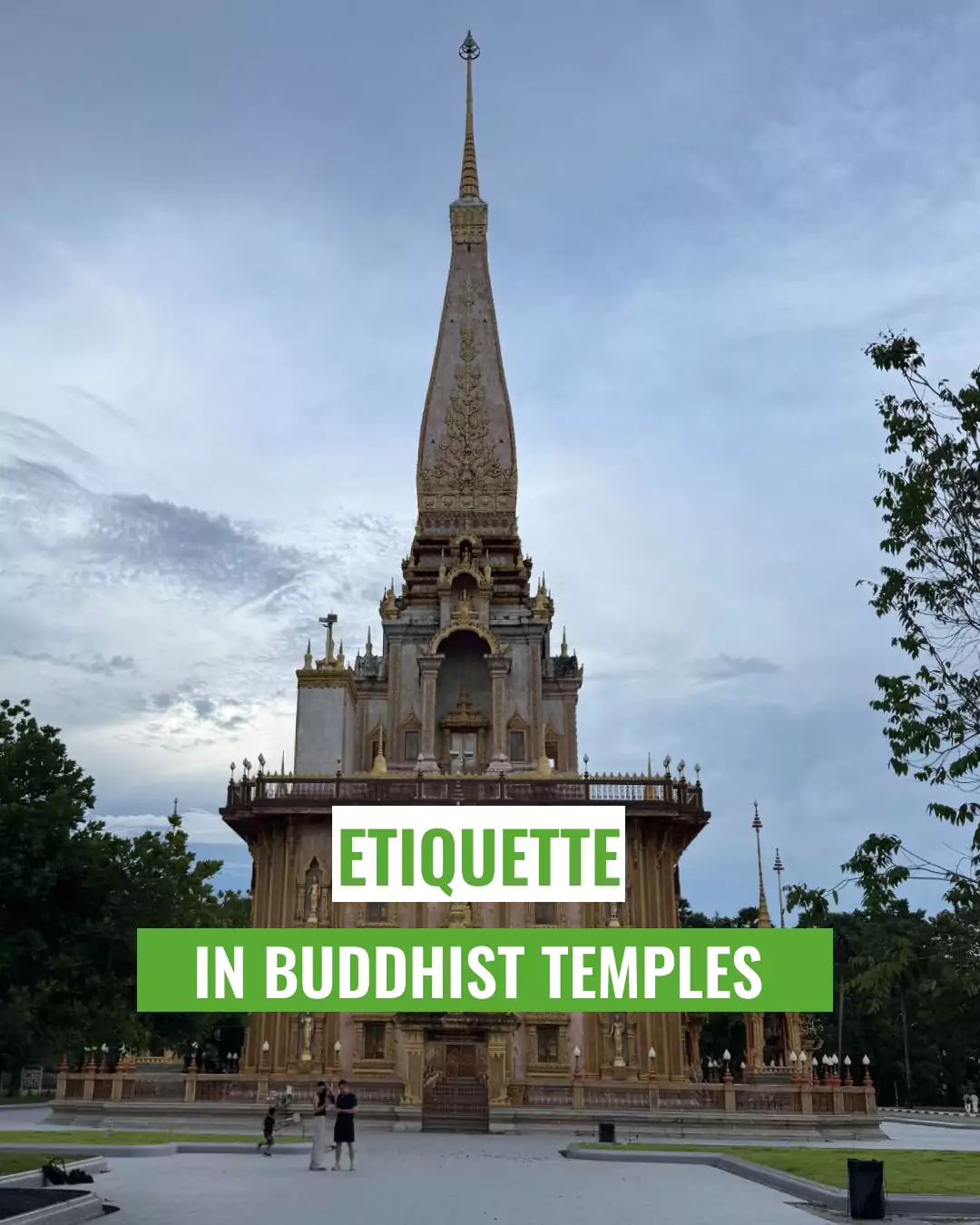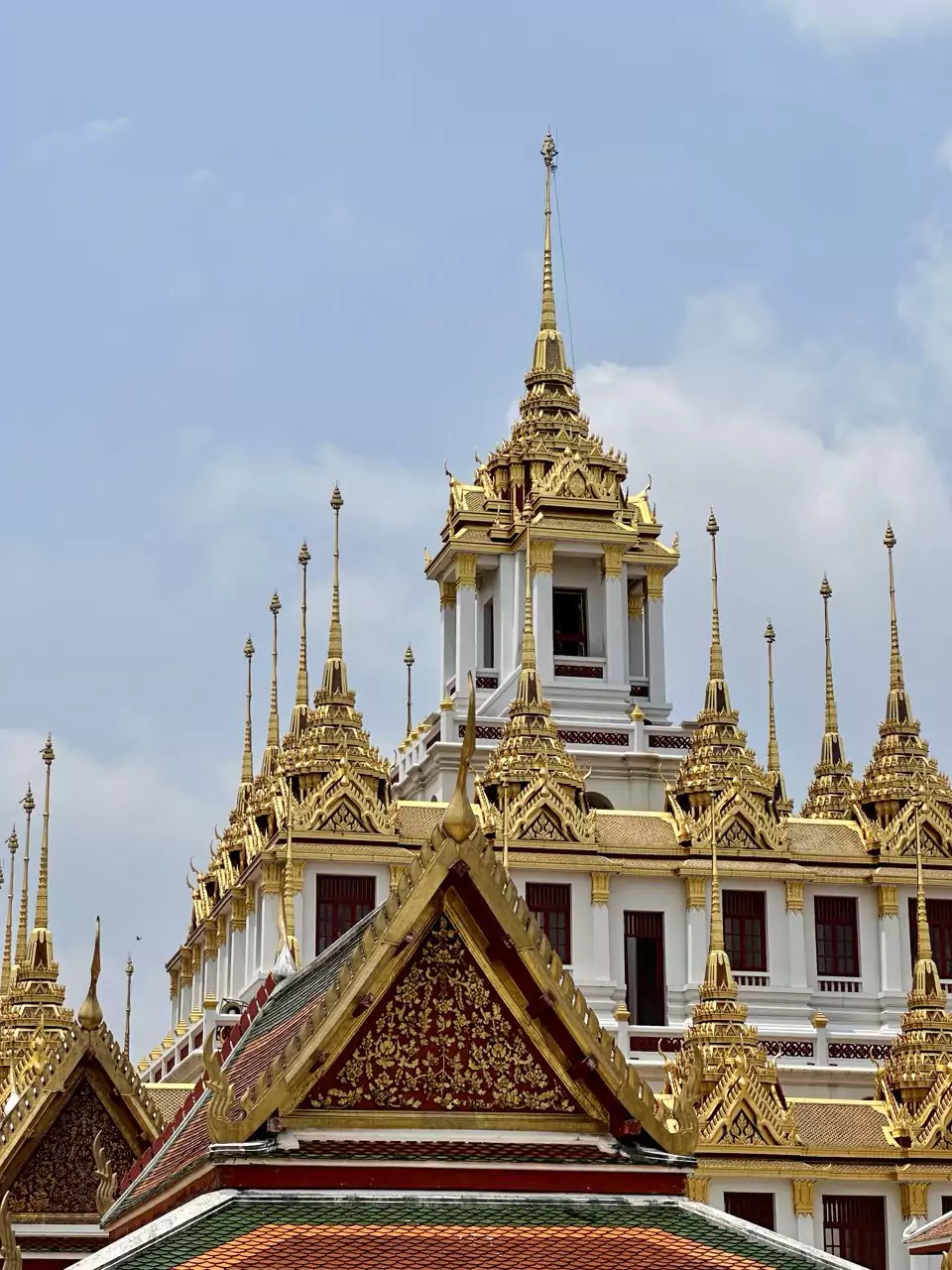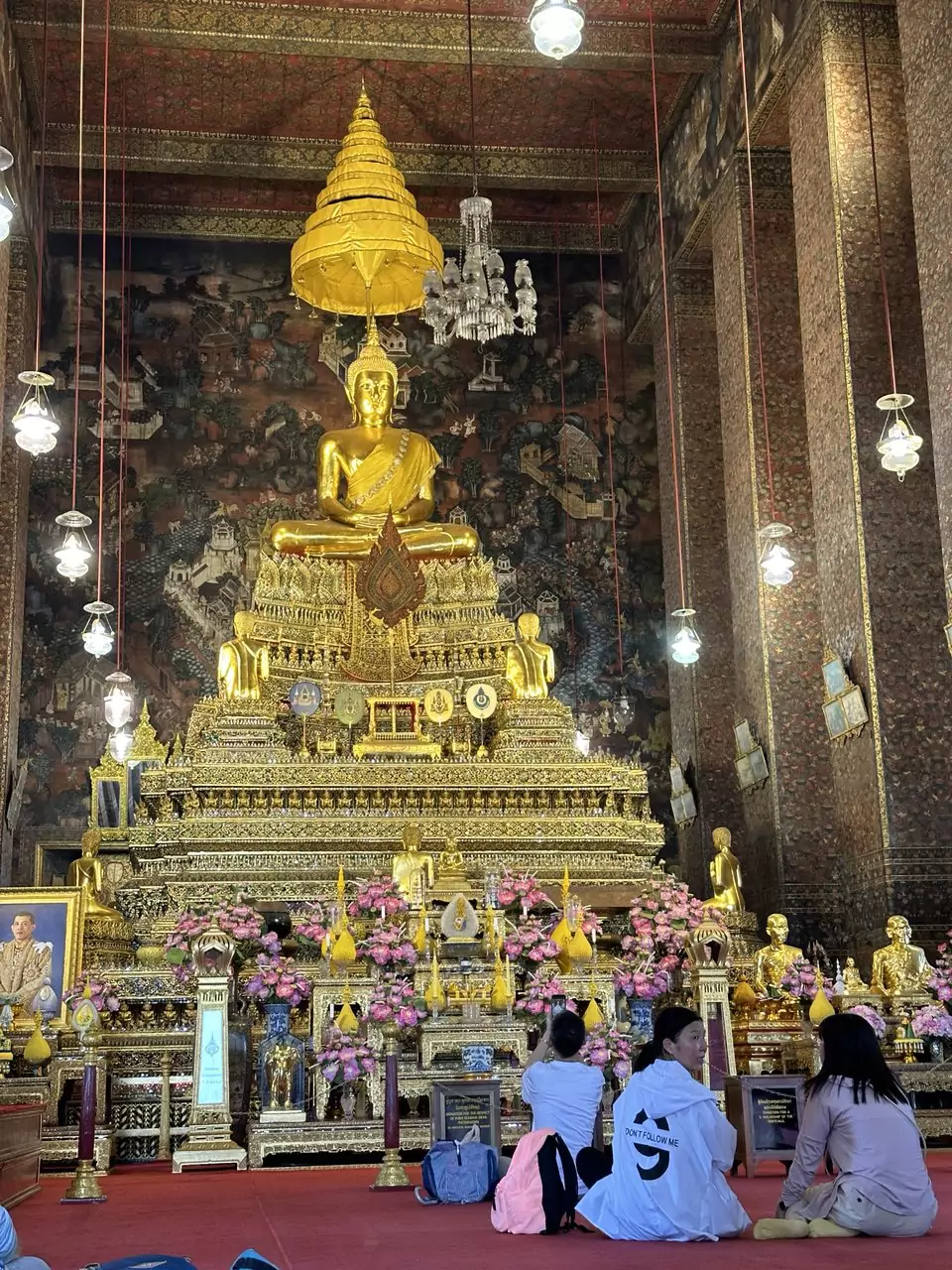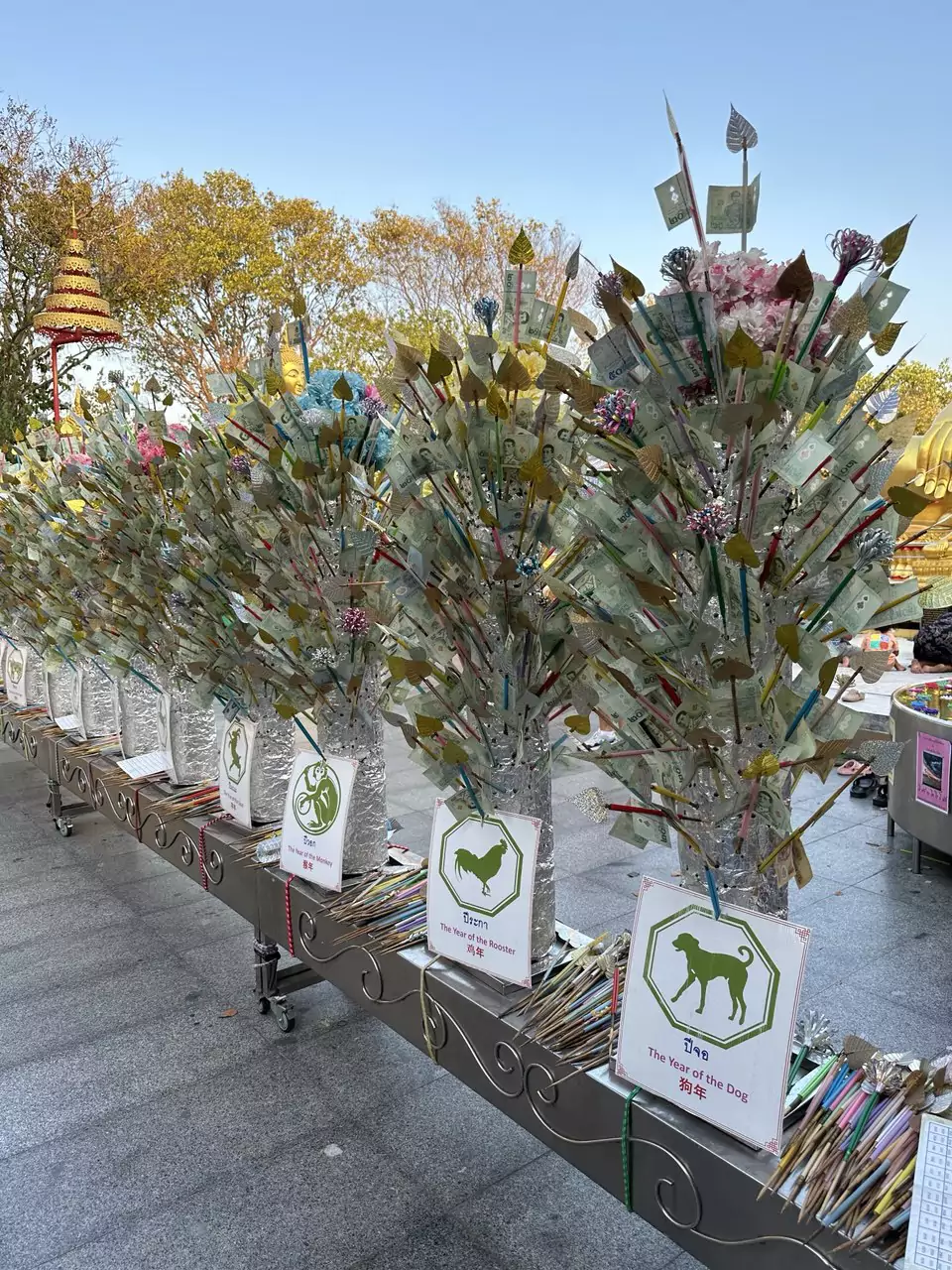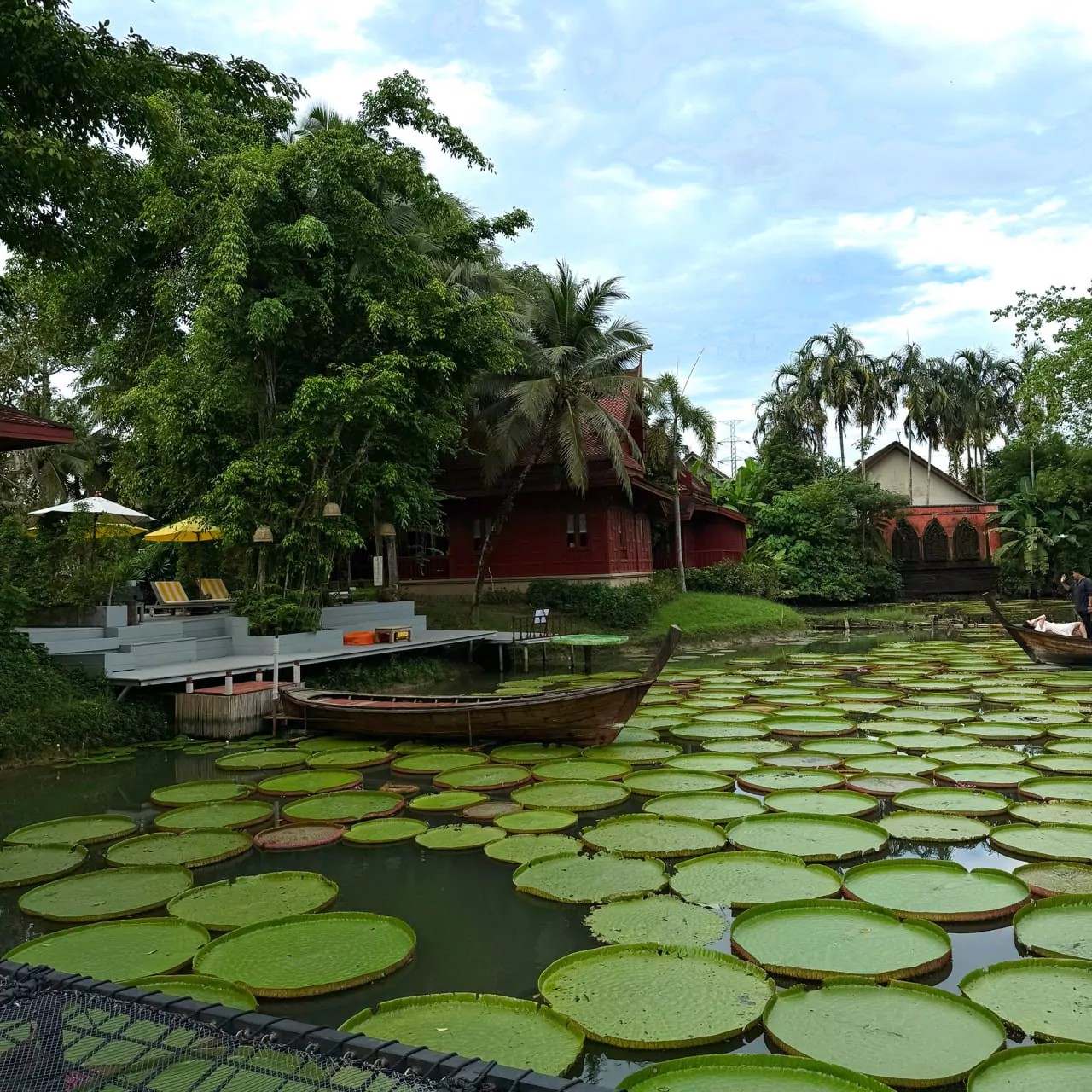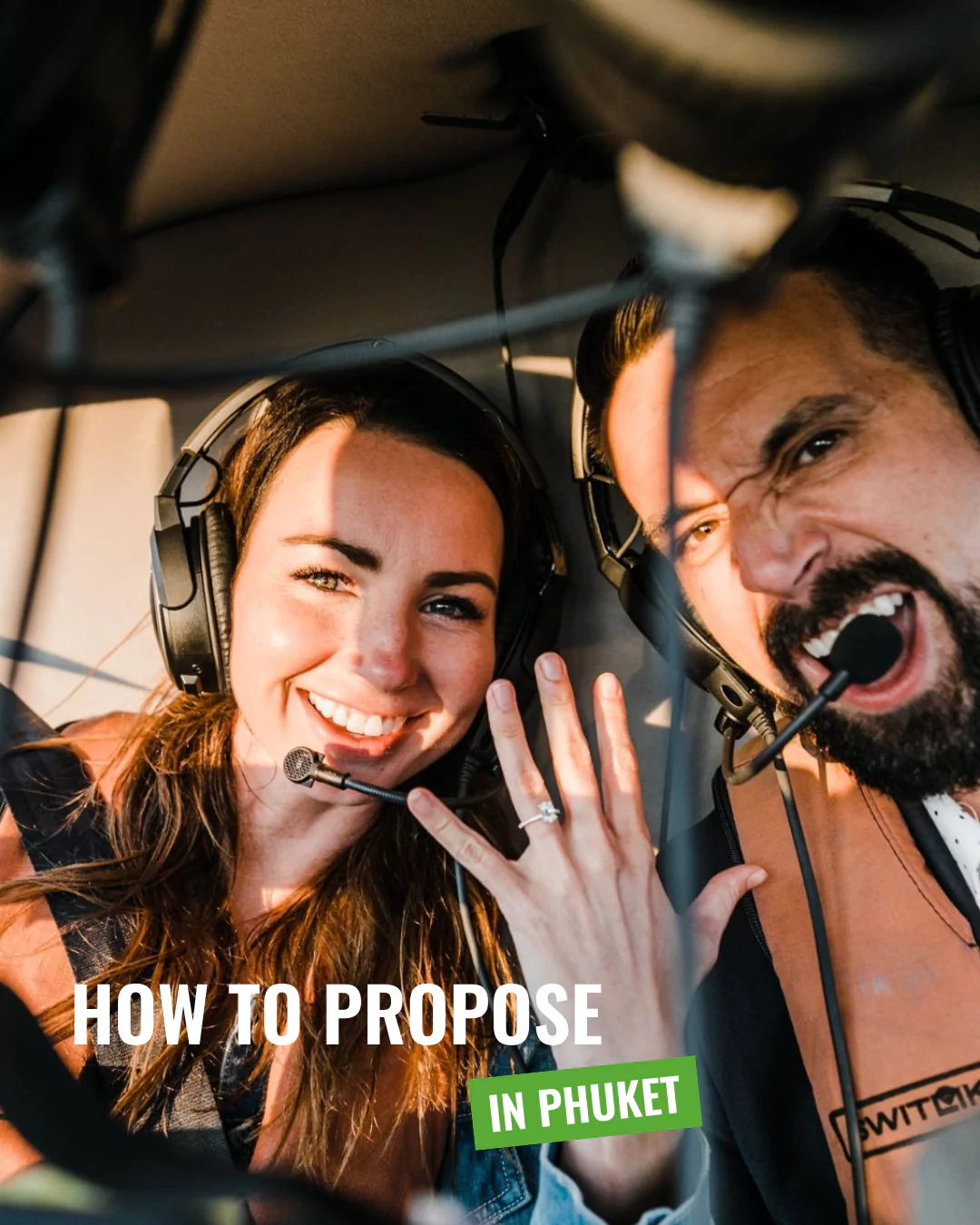Etiquette in Buddhist temples of Thailand
In the temples of Thailand, one can find not only architectural splendor but also an entire world of spiritual traditions. It’s important to remember that Buddhist temples are active religious sites, not just tourist attractions. Therefore, following the rules of etiquette is essential — it shows respect for the local culture and people. Thais are deeply devoted to their religion and take any display of disrespect personally. Here’s how to avoid being seen as an ignorant farang when visiting local sacred sites.
Dress Code: Clothing Matters
Of course, you’re on vacation, in a hot climate, and used to freedom in how you dress. But in Buddhist temples, a strict dress code applies. Shoulders and knees must be covered — and this rule applies to both women and men. That means no short shorts or sleeveless tops. A note for the ladies: even a long skirt with a thigh-high slit won’t be acceptable. However, if you happen to forget, many popular temples offer sarongs or shawls for rent at the entrance.
Interesting fact: in some temples in Bangkok, the dress code is so strict that even tight-fitting leggings or sheer blouses are not allowed. As a general rule: the more conservative your outfit, the fewer problems you’ll face at the entrance.
As for footwear: you must remove your shoes before entering the main temple building. And take note — shoes are usually placed with the toes pointing toward the exit. This positioning has symbolic meaning: when you leave, you won’t have to turn your back on the Buddha to put your shoes on, which is also considered important.
Tip: Wear shoes to the temple that are easy to take off and put on — and preferably not the most expensive pair in your collection. There’s always a chance someone might walk off in your shoes, whether by accident or on purpose.
Body Language
In Buddhist tradition, the body is a tool for showing respect. Here are some key points to keep in mind:
- Sit facing the Buddha. Never sit with your back to a statue or image of the Buddha.
- Be mindful of your feet. In Thai, Lao, and Cambodian culture, it is considered highly disrespectful to point your feet toward the Buddha or monks. If you’re sitting on the floor, sit cross-legged or kneel.
- A “wai” — the traditional Thai greeting with palms pressed together — is appropriate when meeting monks.
- Don’t point at sacred objects or monks with your fingers.
- Never touch a Thai person’s head — it’s considered the most sacred part of the body, where the spirit resides.
Photo Etiquette
These days, we rarely let go of our smartphones, and you’ll definitely want to snap some photos in the beautiful setting of a temple. But it’s not always appropriate. First, check whether photography is allowed inside the temple — especially with flash. Look for signs or ask for permission. Second, do not photograph people during prayer without their consent. And most importantly, never take selfies with Buddha statues. There was a case where a group of French tourists was deported from Sri Lanka for “disrespectful” selfies in which they pretended to kiss a Buddha statue.
Interacting with Monks
Monks follow strict rules of conduct, and it’s important for tourists to respect their way of life:
- Women are not allowed to touch monks — even accidentally — or hand them anything directly. If you need to give something to a monk, place the item nearby so he can pick it up himself.
- Do not point at monks or take their photos without permission.
- If you’d like to speak with a monk, wait until he has finished meditating or praying.
Interesting fact: Some Thai temples offer “Talk with a Monk” programs, where English-speaking monks engage in conversations with tourists about Buddhism.
Offerings and Donations
Making offerings at Phuket’s temples is a wonderful way to support the local religious community. Monetary donations are usually placed in designated boxes. You can also purchase souvenir items at the temple — the proceeds go toward maintaining the temple.
And the obvious basics: silence your phone, speak quietly, and avoid loud conversations or laughter. Remember, for many visitors, a temple is a place of spiritual practice and meditation.
What happens if you break the rules?
Thais are generally polite and tolerant toward tourists unfamiliar with local customs. If you accidentally do something inappropriate, you’ll most likely just be gently corrected. But intentional disrespect toward religious sites can lead to serious consequences — including fines or even deportation.
How to Navigate a Buddhist Temple
A temple complex isn’t just one building — it’s an entire area with different structures for prayer, rituals, storing relics, and the daily life of monks. Each zone has its own purpose and its own rules.
1. Ubosot – the main sacred building
The most important place in the temple. This is where monastic ordinations, major ceremonies, and rituals take place.
How to recognize it:
- Usually the most beautiful and richly decorated building
- Surrounded by 7 or 8 sema stones — the main feature distinguishing it from other structures
- The entrance isn’t always open — sometimes only on Buddhist holidays
Can tourists enter? Yes, but:
- You must remove your shoes
- Don’t sit higher than the monks
- Don’t disturb ceremonies
- Photography is not allowed in every temple
2. Vihan – the worship hall
A building for daily prayers and for visitors. It’s considered less sacred than the ubosot, and therefore it is always open to the public.
How to recognize it:
- Looks similar to an ubosot, but without sema stones
- Inside you’ll find a large statue of the Buddha
- There may be offerings, incense, and donation boxes nearby
Can tourists enter? Yes. This is exactly the place where tourists and locals usually come to light a candle or simply sit in silence.
3. Chedi/Stupa – the reliquary
A tall cone-shaped or bell-shaped structure, often golden (but sometimes white, stone, or tiled).
Purpose:
- To store relics of the Buddha or important monks
- A symbol of enlightenment
How to recognize it:
- A tall stupa tower, usually in the center of the temple grounds or near the vihan
- You typically cannot go inside — it’s closed
Can tourists enter? Usually no, but you may walk around it clockwise as a sign of respect.
4. Monastery Grounds – the monks’ living area
A part of the temple reserved exclusively for monastic life.
How to recognize it:
- Small monk residences (kuti)
- Utility buildings and garden areas
- Typically quieter and without tourists
Can tourists enter? Usually no — it’s a private space. Entrance may be allowed during special events, but you’re not expected to walk there on your own.
5. Additional Temple Elements
Bell tower – rung during rituals
Pavilions (Sala) – open-sided shelters for rest, study, or waiting
Statues and shrines – for example, bronze Buddhas, Nagas, individual altars
Now you’re ready to visit Buddhist temples! To learn even more about the Land of Smiles and its customs, check out our guide on Rules of Behavior in Thailand.
Now you’re ready to visit Buddhist temples! You can find the most beautiful and interesting ones in the Temples section. Be sure to also check out the Excursions section to learn more about Thai culture and history.
We’ve selected the three best tour companies. Fill out the form, and we’ll forward your request — they’ll contact you to provide details on the terms and pricing.
To choose a private tour, you can use the buttons below:

